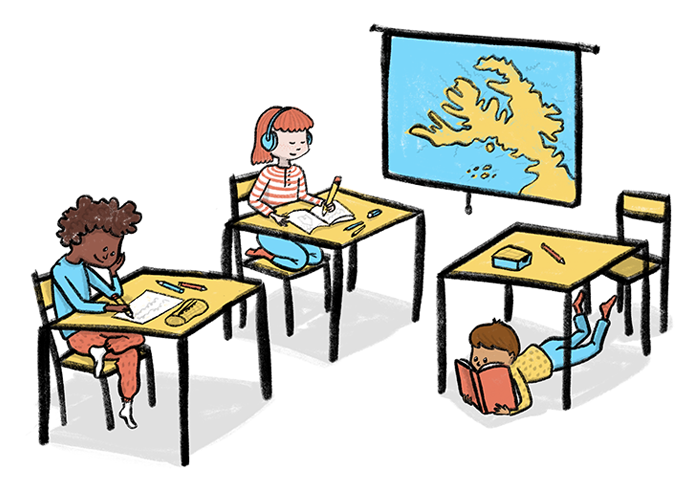Education and teaching

Reykjavík City primary schools follow the national curriculum for primary schools, with reference to the Reykjavík City Education Policy. The main objective of the Policy is for all children to grow, develop and feel happy in a democratic society that is based on human rights and respect for the diversity of human life.
Through robust school and recreation activities, children and young people gain education and experience to realize their dreams and have a positive impact on their environment and society.
Mentor
Mentor is an information system for students, parents and school staff. Guardians and students receive a Mentor password. On the family page, guardians can view their children's schedules, homework, educational assessments, attendance and more.
Lesson plans
Lesson plans describe the content and assessment methods, giving teachers, students and parents an overview of the curriculum.
Student assessment
Ártúnsskóli emphasizes diverse educational assessment to guide learning and teaching for varied student groups.
The main purpose of assessment is to track student progress and evaluate if students meet general competency standards and key competencies in the national curriculum, while encouraging learning.
Teaching methods
School activities emphasize diverse work methods and teaching approaches. Teaching methods and practices consider age, development and ability of students, guided by formative assessment. Teaching aims to help students reach set goals.
Attendance guidelines
The school emphasizes student punctuality. All children aged 6 to 16 must attend school, and parents/guardians are responsible for their enrollment, attendance, and participation.
If attendance issues arise, parents/guardians and the school must respond. To ensure effective responses, Reykjavík's primary schools follow unified guidelines and rules.